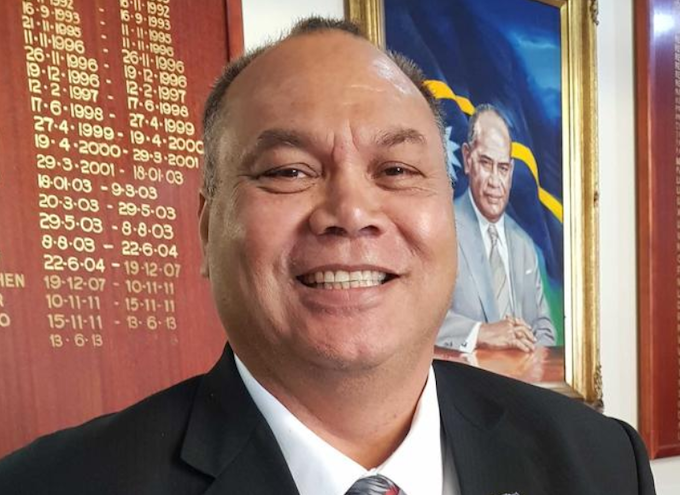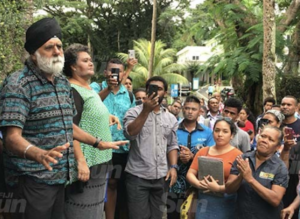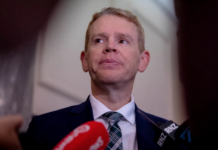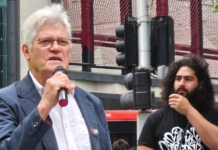
Asia Pacific Report newsdesk
Nauru President Lionel Aingimea has rejected a Fiji minister’s claim that the decision of the University of the South Pacific to reappoint its vice-chancellor and base him in Apia, Samoa, instead of Suva is illegal.
“I don’t see how it can be illegal,” said President Aingimea, who is also the university’s chancellor, in defending the decision to relocate Professor Pal Ahluwalia to Samoa after he was deported by the Fiji government in February in widely condemned circumstances.
“I am also a lawyer and I’ve also read the USP charter and statutes and the [USP] Council has the authority in making appointments.

“There’s nothing in the statutes or the charter to suggest we have broken any rule by reappointing the vice-chancellor or issu[ing] him with a new contract.
“There is nothing illegal about it; council offered him a new contract and it can, as the employer.”
As chancellor of the 12-nation regional university, Aingimea said in statement issued by the Nauru government that the council had acted within the guidelines of the USP charter and statutes in response to a claim by Fiji’s Attorney-General Aiyaz Sayed-Khaiyum last week that USP had acted illegally.
On Tuesday, the university’s two staff unions and the students’ association also issued a joint declaration that USP had acted legally.
Offer of new contract
A sub-committee chaired by President Aingimea presented six recommendations to the USP Council which convened a special meeting on May 25 and June 2 and agreed to offer a new contract to Professor Ahluwalia as vice-chancellor and president (VCP) of the USP.
Students and staff were pleased with the recommendations and the outcome of the council deliberations in re-appointing the VC, said Aingimea.
“The council stands for what’s right and that’s what the students and staff want.”
President Aingimea agreed that it was Fiji’s decision when it came to terminating work visas. However, he added that the issue of contract termination lay with the council as the vice-chancellor’s employer.
“We [USP Council] looked at the USP statutes and charter and we have not broken any rule in offering a new contract to the VC.”
Since the sub-committee was established, President Aingimea said he had received a lot of correspondence from staff, students and the Fiji media inquiring about the status of the VC.
As chairman of the sub-committee, President Aingimea respected the process and considered it inappropriate to respond to those enquiries — until now, saying that any communication and developments arising from the sub-committee must first be reported to council.
Contract renewal precedence
He said there was precedence when former VC Professor Rajesh Chandra’s contract was renewed by the council without advertising the position.
President Aingimea also defended Samoa as an established USP hub — as Emalus campus in Vanuatu was. Relocating the VC to Samoa would not be a disadvantage in terms of the VC carrying out his work.
As a former lecturer at USP, said President Aingimea, the reports and issues facing the university were not new. He described them as “longstanding issues”.
“So maybe it’s about time the region spoke out,” Aingimea said.
“This is a regional university. It doesn’t belong to any one country.”
Fiji has the highest number of students attending USP and is thus the highest contributor to university grants with an annual contribution of $34.4 million.
It also benefits the most through income tax, rent, travel, transport, medical, and the purchase of goods and services by the staff and students that attend and are employed by the university.
Fiji not paid up
In reality, however, said the Nauru government statement, the Fiji government had not paid the full amount in recent years.
In 2019, it was short $7.8 million and $17.75 million in 2020. This year, a contribution has not been made by Fiji, which gets back nine times its contribution.
President Aingimea said all member countries of the USP had the right to an equal voice in the decisions and operations of the USP.
“USP belongs to all of us, not just one country.”













































